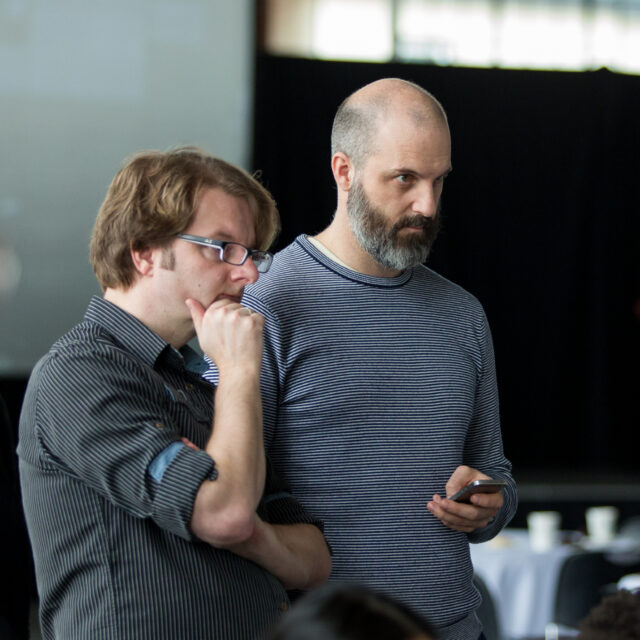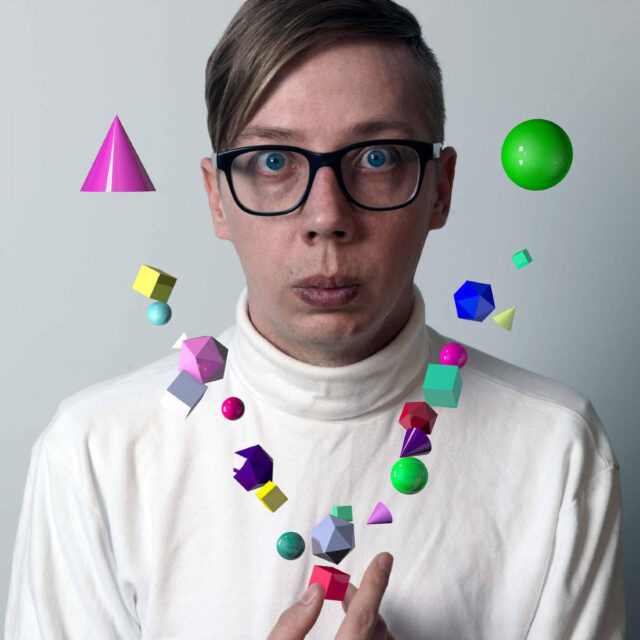← Explore
“The Digital Economies Lab exists because the world was broken even before the pandemic. The motivation for bringing the Lab into being was really trying to find new models and new ways for artists to find the life of an artist to be sustainable.”
Ryan Stec and Remco Volmer are the Artistic and Managing Directors of Artenngine, an Ottawa-based non-profit center for art and technology and initiators of the Digital Economies Lab (DEL). Ryan is an artist, producer and designer working in both research and production, and a PhD candidate at the Azrieli School of Architecture and Urbanism, Carleton University. Remco is a researcher, producer and collaborator; a graduate of Utrecht University of Art’s Creative Media program, his practice is focused on technologically mediated collective experiences.
Q: What is the purpose of the Digital Economies Lab?
A: The Digital Economies Lab exists because the world was broken even before the pandemic. The motivation for bringing the Lab into being was really trying to find new models and new ways for artists to find the life of an artist to be sustainable. It’s such a marginalized condition in terms of access to stability—whether that’s financial stability, [or] all kinds of other stability. So we wanted to bring together artists and cultural workers to run a kind of design program where they were thinking about cultural infrastructure and the opportunities and challenges that they could re-imagine around that.
Q: How do you think the DEL residents should approach their projects, given the challenges posed by the pandemic?
A: On a very practical level, I hope that participants can get grounded back into their practice—that they have something to focus their thinking on. And that they are not shy to also discard an idea that they may have been working on, and that suddenly they feel is, within the current timeframe, maybe not be the most urgent issue to work on. And that they’re not too shy to say, “okay, we’ll put that aside and we’re going to reorient,” or “we’re going to just dismantle this idea and take some of these elements and rebuild it in a different way,” so that they keep that enthusiasm. Because I think the core issues that the lab wants to address are possibly more urgent than they even were when we started.
“It’s like a very long marathon that we’re running, but we need to shift the world from right-place, right-time privilege to, ‘if you work and you are passionate, you get access and you can achieve success,’ right?”
Jeremy Bailey is a Toronto-based self-proclaimed “Famous New Media Artist” and Head of Experience at FreshBooks. Bailey believes that technology done right empowers us all to be famous, and he has taken that positivity and channeled into the Lean Artist program, a project he initiated to catalyze artistic imagination by drawing on strategies and models from the startup world. Along with Jen Hunter, Jeremy served on the DEL steering committee, and helped shape the program undertaken by its residents.
Q: What kind of outputs did you envision for DEL, coming into the project?
A: It’s like a very long marathon that we’re running, but we need to shift the world from right-place, right-time privilege to, “if you work and you are passionate, you get access and you can achieve success,” right? Prosperity should be an equal right for all artists. It’s just not that way. And the way that it’s set up, institutionally, is structured to keep certain people out. So we have to look at the structures that support what has been a cyclical problem.
My idea, though naive, was: what if I provided some of the knowledge that people use to accumulate capital to artists to kind of play within that space and see if it generates something? I don’t have an answer though. I’d say that as an artist, my provocation is speculative. Whereas I think with DEL, the mission was to actually come up with one new model. That was the speculation anyway. Could we get to one new sustainable model?

